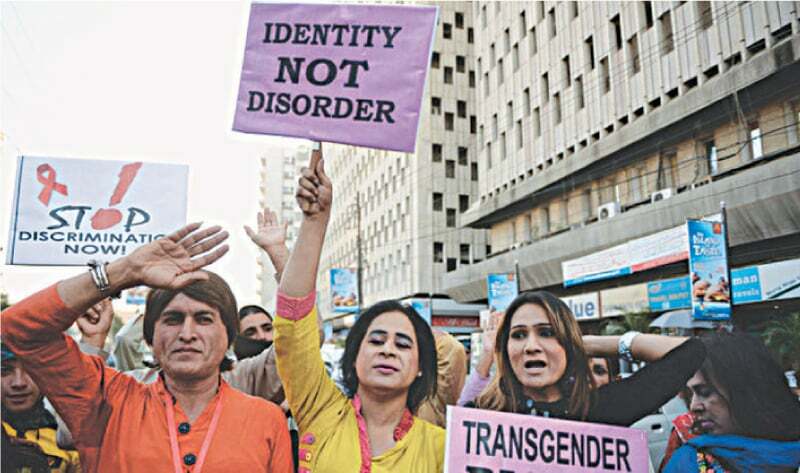by FARAH ADEED

“Only free conduct is moral conduct. By negating freedom, and thus the possibility of choice, a dictatorship contains in its premises the negation of morality. To that extent, regardless of all historical apparitions, dictatorship and religion are mutually exclusive.” — Alija Izetbegovi?, former president of Bosnia and Herzegovina and Islamic philosopher
The Transgender Persons (Protection of Rights) Act, 2018 was passed in 2018. In 2022, it has been declared ‘unIslamic’ by a specific segment of the society. In response to malicious social media campaigns, the state authorities have sheepishly assured religious parties of prompt amendments to make the Act ‘Islamic’. It is, therefore, important to look at the reasons behind the seemingly widespread disapproval of the act.
Why did religious parties disapprove the Transgender Persons Act? Is it an entirely religious matter? Who benefits from the current debate over the act? The larger political context around the issue might help make sense of the complex interplay of politics and religion in contemporary Pakistan.
Although there has been a deliberate effort to link this act with the promotion and legalisation of homosexuality in Pakistan, the problem lies somewhere else. Religious parties have clarified that the entire act is not a bad law, but that a specific clause is quite problematic in their eyes.
The problematic clause reads as follows:
“Every transgender person, being the citizen of Pakistan, who has attained the age of eighteen years shall have the right to get himself or herself registered according to self-perceived gender identity with the National Database and Registration Authority (NADRA) on the Computerised National Identity Card (CNIC), Child Registration Certificate (CRC), driving license and passport, in accordance with the provisions of the Nadra Ordinance, 2000 or any other relevant laws.”
Dawn for more
